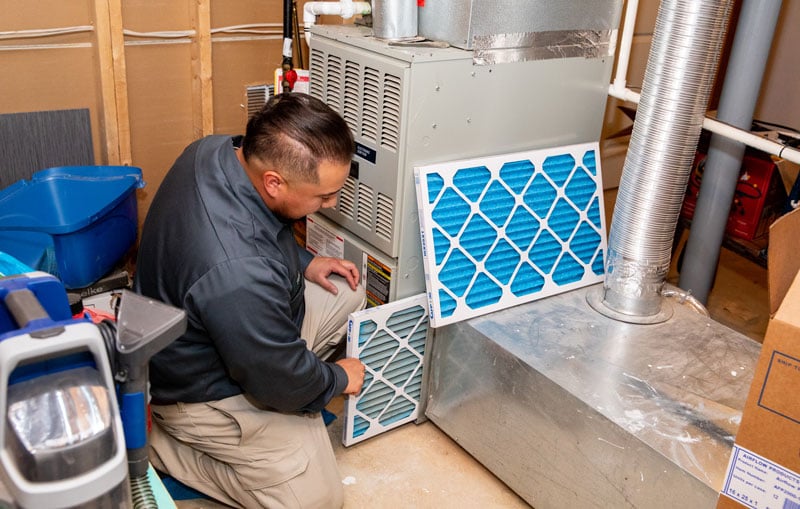
An air conditioner will give you about 10 to 15 years of service, on average. So one of the first things you will want to do is determine the age of your current cooling system and whether it is near the end of its useful life. If you bought the system yourself, you shouldn’t have too hard a time figuring out its age, especially if you’re the organized type and you filed or scanned the original receipt.
However, in a case where the air conditioner was already in place before you bought your house, you’ll have to do a bit of detective work. If you are lucky, you will easily find the info you need on the metal nameplate that is attached to the A/C’s outdoor condenser unit, where the manufacture date is often written out as the month and year.
How Often to Replace Your AC Unit
You can expect to replace an AC unit every 10-15 years unless you experience problems with the unit. Air conditioning units can last a surprisingly long time, but they can also break unexpectedly.
Be sure to keep up with maintenance and proper storage of the unit once the weather becomes cold. Storing your AC unit in a cool, dry and less-trafficked location of your home will allow you to re-install the unit come spring. Repairing AC units requires an expert technician, so always rely on expert advice before replacing your AC unit.
Signs That You Need a New Air Conditioner

The air flow isn’t all that great.
So maybe you’re getting cool air throughout your home, but you’ve noticed that your AC isn’t pushing air out the way it used to. This could mean any number of things, including issues with your AC’s compressor or blocked/damaged vents. While it’s possible to have a professional manage these repairs, they can be quite expensive depending on your system’s age and the extent of the issue. When the costs get too high, you might want to consider the cost for a new unit.
Buildup of Moisture
All AC units will create moisture to some extent, but those which are functioning properly should be able to handle it without issue. When moisture is present or leakage is occurring around the AC, it could be that you have a refrigerant leak on your hands. This will not only cause the system to underperform, but it also poses a serious health risk to you and your family. Even if it’s just water that’s building up, allowing the problem to persist can creating an undesirable breeding ground for mold.

